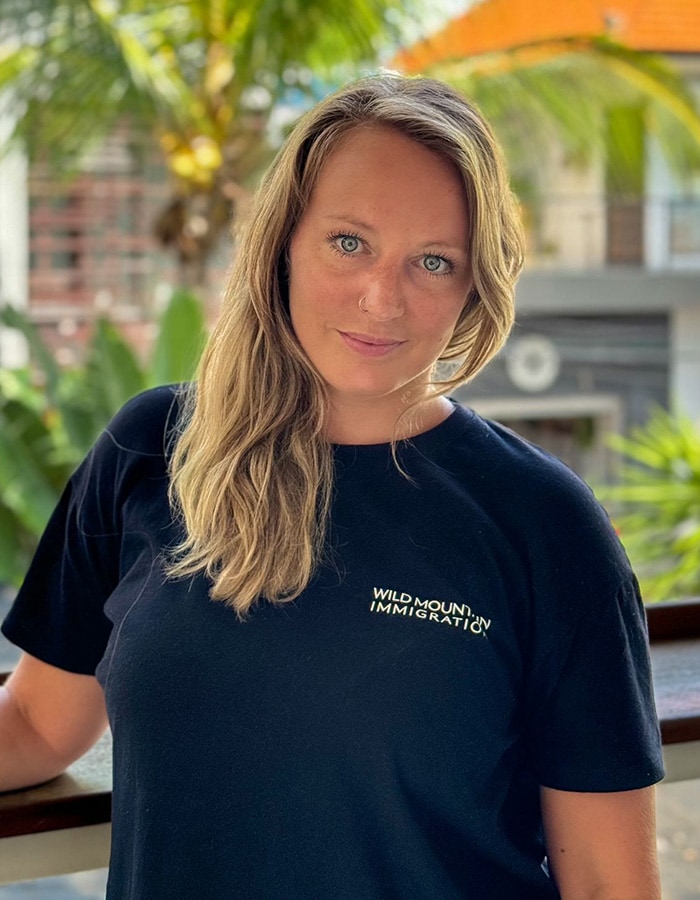As an international student graduating from a Canadian institution, obtaining a Post-Graduation Work Permit (PGWP) can be your pathway to valuable Canadian work experience and, potentially, a step toward permanent residency. However, understanding the requirements and navigating recent updates is essential to successfully applying for a PGWP in 2024.
This guide will walk you through everything you need to know about PGWP eligibility, including specific program requirements, recent policy changes affecting graduates, and essential steps in the application process. With new rules regarding field of study, language proficiency, and in-Canada study requirements, applicants need to stay informed to make the most of this opportunity.
Whether you’re finishing your studies or planning ahead, here’s everything you need to know to secure your PGWP and start your career in Canada.

Canadian Immigration Consultant
Let our expert team of Canadian immigration consultants guide you through the complexities of Canada’s immigration process. We provide personalized, step-by-step support to ensure a smooth and successful journey to your new life in Canada.
What is the PGWP?
The Post-Graduation Work Permit (PGWP) is a valuable program for international students in Canada who want to gain Canadian work experience after completing their studies. This permit allows eligible graduates from a Designated Learning Institution (DLI) to work in Canada for a duration that aligns with their program length—up to a maximum of three years. Importantly, a post-graduation work permit provides an open work permit, enabling graduates to work for any employer in any location across Canada.
To qualify, applicants must meet the PGWP requirements, which include graduating from an eligible program and meeting the PGWP eligibility standards set by Immigration, Refugees and Citizenship Canada (IRCC). This permit plays a crucial role in helping international graduates transition from study to work, allowing them to explore career opportunities within their fields or related areas, thus enhancing their Canadian experience and increasing their potential pathways to permanent residency.
The Canada post graduate work permit program is particularly beneficial as it allows graduates to settle into the Canadian workforce, apply their skills in real-world settings, and potentially qualify for programs like the Canadian Experience Class. For many, the work permit for Canada after study is a key step toward building a future in Canada.
General Eligibility Requirements for PGWP
To be eligible for the Post-Graduation Work Permit (PGWP), applicants must meet specific criteria. These PGWP requirements are designed to ensure that only those who completed eligible studies at a Designated Learning Institution (DLI) can apply. Key eligibility points include:
Graduation from a Recognized DLI: Only graduates from institutions on Canada’s approved DLI list qualify for a post graduation work permit Canada. It’s essential to verify that your program meets DLI standards, as not all programs at DLIs are PGWP-eligible.
Full-Time Student Status: Applicants should have maintained full-time status in Canada during each semester of their study program. Exceptions to this requirement include part-time status in the final semester or COVID-19-related accommodations that affected enrollment between March and fall 2020.
Application Time Frame: The post-graduation work permit application must be submitted within 180 days of receiving confirmation of graduation (such as transcripts or an official letter). Additionally, the applicant’s study permit must have been valid for at least part of the 180-day post-graduation period.
Meeting these PGWP eligibility requirements allows graduates to secure a Canada post graduate work permit and legally work across Canada in roles related to their field of study. The Canada work permit post graduate program is an opportunity for graduates to gain experience that could support future applications for permanent residency.
Special Exceptions and Cases for Eligibility
Certain exceptions allow some students to qualify for the PGWP even if they don’t meet standard requirements. These cases account for unique circumstances and flexible study arrangements, which may still lead to a post-graduation work permit:
Part-Time Study in Final Semester: If a student was full-time throughout their studies but took a reduced course load in their last semester, they may still qualify for the Canada PGWP. This is a common exception in PGWP requirements for those close to graduation.
Approved Leaves of Absence: Students who took a break due to medical or personal reasons may still be eligible. Canada post graduate work permit policies allow for specific types of approved leave as long as students resumed their studies once able.
COVID-19 Flexibility: For students impacted by the COVID-19 pandemic, the Canada post graduation guidelines temporarily allowed part-time enrollment or a transition to online learning during certain semesters. These adjustments apply if the change occurred between March 2020 and fall 2020.
Accelerated Programs: Those who completed an accelerated program in less time than usual may still meet the PGWP eligibility standards, provided they completed all program requirements.
Programs with Canadian and Overseas Components: Graduates of certain Canadian programs with an overseas component may also be eligible. However, time spent studying outside Canada may impact the length of the post graduation work permit Canada granted.
These exceptions make it possible for students with unique situations to access a work permit for Canada after study, which can be invaluable for building their careers. Understanding these nuances in PGWP requirements ensures that eligible graduates don’t miss the chance to apply due to special circumstances.

Program-Specific Eligibility Requirements
The PGWP requirements also vary based on the level and type of study program completed in Canada. Different qualifications apply depending on whether a graduate completed a university degree, college diploma, or specialized training. Here’s a breakdown of eligibility by program type:
Bachelor’s, Master’s, or Doctoral Degree Programs: Graduates with a recognized bachelor’s, master’s, or doctoral degree from a Canadian university are typically eligible for the post-graduation work permit Canada. These programs often qualify for longer work permits, up to three years, depending on program duration.
Non-University and College Programs: Graduates of diploma and certificate programs at eligible Canadian colleges can also apply for a Canada PGWP. However, the work permit duration may be shorter, especially for programs lasting less than two years. Be sure to check with your institution to confirm PGWP eligibility.
Flight Schools: Graduates from specific flight training programs may be eligible for the Canada post graduate work permit, provided their program meets the minimum eligibility requirements and is associated with a Designated Learning Institution.
Quebec-Specific Programs: Certain programs in Quebec may also qualify, but eligibility can vary by institution and program type. Quebec graduates should verify that their program aligns with the post graduation work permit guidelines set by the Canadian government.
By confirming eligibility based on program type, students can ensure they meet Canada work permit post graduate standards and apply for a permit that accurately reflects their qualifications. Securing a post graduate work permit Canada through an approved program gives graduates the freedom to work across Canada in their field or gain diverse industry experience.
Updates on PGWP Policy Changes (September 2024)
As of September 18, 2024, new requirements from Immigration, Refugees and Citizenship Canada (IRCC) impact students applying for the Post-Graduation Work Permit (PGWP). These updates focus on language proficiency standards and program eligibility changes, which are essential for students who plan to apply after November 1, 2024.
Language Proficiency Requirement: Starting November 1, 2024, applicants for a post graduation work permit Canada must demonstrate minimum language proficiency. For college graduates, this requirement is a Canadian Language Benchmark (CLB) level of 5 in English or French. Ensuring you meet this benchmark is now a key part of PGWP requirements.
Field of Study Requirements: The new policy also includes specific eligibility based on the field of study. IRCC has introduced an approved list of programs tied to in-demand fields, such as healthcare, STEM (science, technology, engineering, and mathematics), trades, and transportation. Applicants who graduate from these programs may be more likely to qualify for the Canada post graduate work permit.
Seneca and Other Specific Institutions: Some institutions, like Seneca College, have shared their own lists of PGWP-eligible programs. Graduates should verify their institution’s updates to ensure they meet post-graduation work permit Canada criteria under the new rules.
Time Limits for Applications: Graduates are encouraged to apply as soon as possible if they complete their studies in late 2024 to avoid delays or potential ineligibility under these new guidelines.
Staying informed about these changes in PGWP requirements is crucial, as they directly impact eligibility for a Canada PGWP. These adjustments underscore the importance of being proactive to ensure eligibility and securing a work permit for Canada after study.
Field of Study Requirements and CIP Codes
To better align with Canada’s labor market needs, the Post-Graduation Work Permit (PGWP) program now includes specific field of study requirements. These updates help focus eligibility on programs that support in-demand occupations in Canada. To confirm eligibility, graduates may need to refer to CIP (Classification of Instructional Programs) codes, which categorize programs by field and are used by IRCC to assess eligibility for a Canada post graduate work permit.
Key Fields of Study for PGWP Eligibility
Eligible fields generally fall under five main categories:
- Healthcare: Programs in fields like nursing, medicine, and public health are prioritized.
- STEM (Science, Technology, Engineering, and Mathematics): Programs in areas such as computer science, environmental science, and engineering offer pathways to a PGWP Canada.
- Trade: Courses in trades like electrical work, welding, and carpentry support work permits under the Canada work permit post graduate program.
- Transportation: Programs related to logistics, transport management, and aviation are also eligible.
- Agriculture and Agri-Food: This category includes programs in animal science, plant science, and food production, each linked to long-term skill needs in Canada.
Using CIP Codes for Verification
Each field of study has a specific CIP code, which helps applicants verify if their program qualifies under the latest PGWP requirements. Graduates can cross-reference these codes to ensure their program aligns with eligible fields, as this will play a significant role in IRCC’s decision to grant a post graduate work permit Canada.
For students aiming to stay in Canada after their studies, confirming eligibility based on field of study is essential. Those in eligible programs can confidently apply for a work permit for Canada after study and transition into the workforce, knowing their field supports the Canadian job market.
Program Length and Permit Duration
The duration of a Post-Graduation Work Permit (PGWP) depends largely on the length of the graduate’s study program. Understanding this relationship helps students plan their post-study work timeline and know what to expect when they meet PGWP requirements.
Programs of Less Than 8 Months: Unfortunately, graduates from programs under eight months in length are not eligible for a Canada post graduation work permit.
Programs Lasting 8 Months to Less Than 2 Years: For programs that are at least eight months but under two years, the post-graduation work permit Canada will typically match the length of the study program. For instance, a one-year diploma program would qualify the graduate for a one-year PGWP.
Programs of 2 Years or Longer: Graduates from programs that are two years or more are generally eligible for a post graduation work permit valid for up to three years. This is especially beneficial for those who want extended work experience in Canada and potentially explore pathways to permanent residency.
Special Rule for Master’s Degree Programs: Starting February 15, 2024, graduates from master’s degree programs shorter than two years (minimum of 8 months) may still be eligible for a three-year PGWP Canada. This rule provides greater flexibility for master’s students who have completed intensive, shorter programs.
Passport Validity and PGWP Duration
Applicants should ensure their passport is valid for the full duration they’re eligible for under the Canada post graduate work permit program. If a passport expires before the eligible permit duration, IRCC will issue a shorter permit. In such cases, applicants can extend their post-graduate work permit Canada once they renew their passport.
By understanding how program length and passport validity impact permit duration, students can optimize their plans and make the most of the work permit for Canada after study.
Applying for the PGWP from Inside vs. Outside Canada
Where you apply for the Post-Graduation Work Permit (PGWP)—whether inside or outside Canada—can impact your application and eligibility. The PGWP requirements differ slightly depending on the location, especially with recent changes to eligibility for students who studied online or outside Canada.
Applying from Inside Canada
Most students apply for the Canada post graduate work permit within Canada, which allows a smooth transition from study to work. Applicants who apply from within Canada can begin working full-time as soon as they submit their application, provided they meet the post-graduation work permit Canada criteria and have maintained their student status.
- In-Class Study Requirement: For students starting their programs after September 1, 2024, at least 50% of the program must be completed in person in Canada to qualify for the full duration of the Canada PGWP.
- Hybrid and Flexible Courses: Hybrid programs are also eligible for the post graduate work permit, provided that the in-class component is met. For flexible courses, students should plan to attend part of the program in person to meet PGWP requirements.
Applying from Outside Canada
If you completed part or all of your studies from outside Canada, it’s essential to understand how this affects PGWP eligibility. For instance, time spent studying outside Canada after September 1, 2024, will be deducted from the length of the post-graduation work permit issued. Therefore, applicants studying outside Canada should ideally plan to return to Canada before graduation to maximize their work permit for Canada after study.
By understanding the impact of where you apply, students can better navigate the Canada work permit post graduate application process. Applying from within Canada ensures greater eligibility for the full permit duration, providing an ideal option for those who want to start working immediately after graduation.

How to Apply for a PGWP
Applying for a Post-Graduation Work Permit (PGWP) is a straightforward process if you meet the PGWP requirements and follow the correct steps. Here’s a step-by-step guide to applying for your post-graduation work permit Canada and beginning your work journey in Canada.
Step-by-Step PGWP Application Process
- Gather Required Documents: Before starting, ensure you have all necessary documents, including proof of graduation (such as transcripts or an official letter from your institution), a valid passport, and, if applicable, proof of language proficiency as per recent policy changes.
- Create an Online Account on IRCC: Most applicants submit their Canada post graduate work permit application online via the IRCC portal. This online platform allows you to track the status of your application and submit any additional documentation if requested.
- Complete the Application Form: Fill out the form accurately, ensuring all details align with your student information. Be thorough, as mistakes can lead to delays in processing your PGWP Canada application.
- Pay the Required Fees: The application requires a processing fee plus an open work permit holder fee. Make sure to pay these fees to avoid delays or application rejection.
- Submit and Track Your Application: Once you’ve completed all sections, submit your application and retain a copy of the submission confirmation. If applying from within Canada, you can begin working immediately after submission if your PGWP eligibility is confirmed.
Timeline and Expected Processing Times
Processing times for the post graduation work permit Canada can vary, typically ranging from 80 to 120 days. Be sure to check the IRCC website for the most current timelines and any application processing changes that may impact your work permit for Canada after study.
Following these steps carefully can help you navigate the application process smoothly and secure a Canada PGWP that opens the door to work opportunities across Canada.
PGWP Extensions and Expiry Considerations
The Post-Graduation Work Permit (PGWP) is generally issued as a one-time opportunity, meaning extensions are typically not allowed. However, there are some exceptions based on unique circumstances. Knowing the expiry rules and options for extending your post-graduation work permit can be crucial in planning your career path in Canada.
Passport Expiry and Permit Duration
The duration of your Canada post graduate work permit is directly influenced by the validity of your passport. If your passport expires before the eligible length of your post graduation work permit Canada, IRCC will issue a PGWP that matches your passport’s expiry date. Once you renew your passport, you may be able to apply for an extension of your PGWP to its original eligibility duration.
- Applying for an Extension: If IRCC notifies you that an extension is possible after renewing your passport, you will need to submit a paper application to extend your PGWP Canada. This is a unique case where an extension may be granted to meet the full permit duration you were initially eligible for.
- Exploring Other Work Permit Options: If you’ve used the maximum duration of your post graduate work permit Canada, consider other work permits, such as employer-specific work permits or those available through provincial nominee programs. This can allow you to continue working in Canada even after your PGWP expires.
Understanding your options for managing your work permit for Canada after study expiry can help you plan a long-term career and potentially transition to permanent residency.
Conclusion
Securing a Post-Graduation Work Permit (PGWP) is a significant step toward building a future in Canada. By meeting the PGWP requirements, recent graduates gain the chance to work in their chosen fields and gain valuable Canadian experience that can support pathways to permanent residency. With updated eligibility criteria, including specific field of study and language proficiency requirements, it’s essential for applicants to stay informed and apply promptly to avoid missing out.
As you navigate the Canada post graduate work permit process, remember to verify program eligibility, ensure compliance with in-Canada study requirements, and follow the detailed application steps. By being proactive and thorough, you can increase your chances of success and enjoy a smooth transition to your work permit for Canada after study.
For additional guidance on your PGWP Canada application or questions about eligibility, contact Wild Mountain Immigration. Our team is here to help you understand the details of post graduation work permit Canada requirements, avoid application pitfalls, and explore the next steps toward a successful career in Canada.
How We Can Help
At Wild Mountain Immigration, our experienced team of certified Canadian immigration consultants is here to help you navigate the complexities of the immigration system. Whether you’re applying for permanent residency, a work permit, or dealing with a complex immigration case, we provide personalized support tailored to your needs.
Contact us today to learn how we can help you achieve your Canadian immigration goals.
FAQs
To be eligible for a Post-Graduation Work Permit (PGWP), you must have completed an eligible program at a Designated Learning Institution (DLI) in Canada, maintained full-time student status throughout your studies (with some exceptions, like part-time in your final semester), and apply within 180 days of receiving confirmation of graduation. Your program must also meet the minimum length requirement of 8 months, and you should have studied in Canada for at least 50% of your program duration.
The latest rules for the PGWP program, effective November 1, 2024, include a new language proficiency requirement of CLB5 for college graduates, as well as updated field of study eligibility criteria focused on programs in high-demand sectors such as healthcare, STEM, trades, and transportation. These changes affect graduates who apply for a PGWP after this date, so it’s essential to verify program eligibility.
The timeline for obtaining permanent residency (PR) after a PGWP depends on the program you qualify for, such as the Canadian Experience Class (CEC) or a Provincial Nominee Program (PNP). Generally, it can take one to two years of skilled work experience in Canada to become eligible for PR through CEC, provided other eligibility requirements are met.
In 2024, students eligible for a PGWP include those who graduate from a DLI with an eligible program, meet the language proficiency standards, and complete at least 50% of their studies in Canada. Those studying in certain fields tied to Canada’s labor market needs (e.g., healthcare, technology, trades) may have an advantage, as these fields align with new eligibility criteria.
A PGWP application may be rejected if the applicant does not meet eligibility criteria, such as graduating from a non-eligible program or failing to maintain full-time student status. Other common reasons include not applying within the 180-day period after graduation, incomplete documentation, or failure to meet the in-Canada study requirements for program completion.
No, you do not need a job offer to apply for a PGWP. It is an open work permit, allowing you to work for any employer across Canada without requiring a pre-existing job offer. This flexibility supports recent graduates as they seek employment in their field.
Canadian Immigration FAQs
Find quick answers to the most common questions about Canadian immigration, visas, and permanent residency.
LMIA Costs Explained: How Much Does LMIA Cost in 2024?
For Canadian employers seeking to hire foreign workers, a Labour Market…
Can I Leave Canada After Applying for Spousal Sponsorship?
When applying for spousal sponsorship in Canada, many applicants wonder,…
Who Can Apply for BOWP (Bridging Open Work Permit) in Canada?
If you’re transitioning from temporary status to permanent residence in…
Start Your Canadian Immigration Journey
Our experts make the process clear, stress-free, and successful, so you can move forward with confidence and focus on what matters most.

Contact Us
Immigration questions and service enquiries
Consultation
Speak to an expert
immigration consultant
"*" indicates required fields



